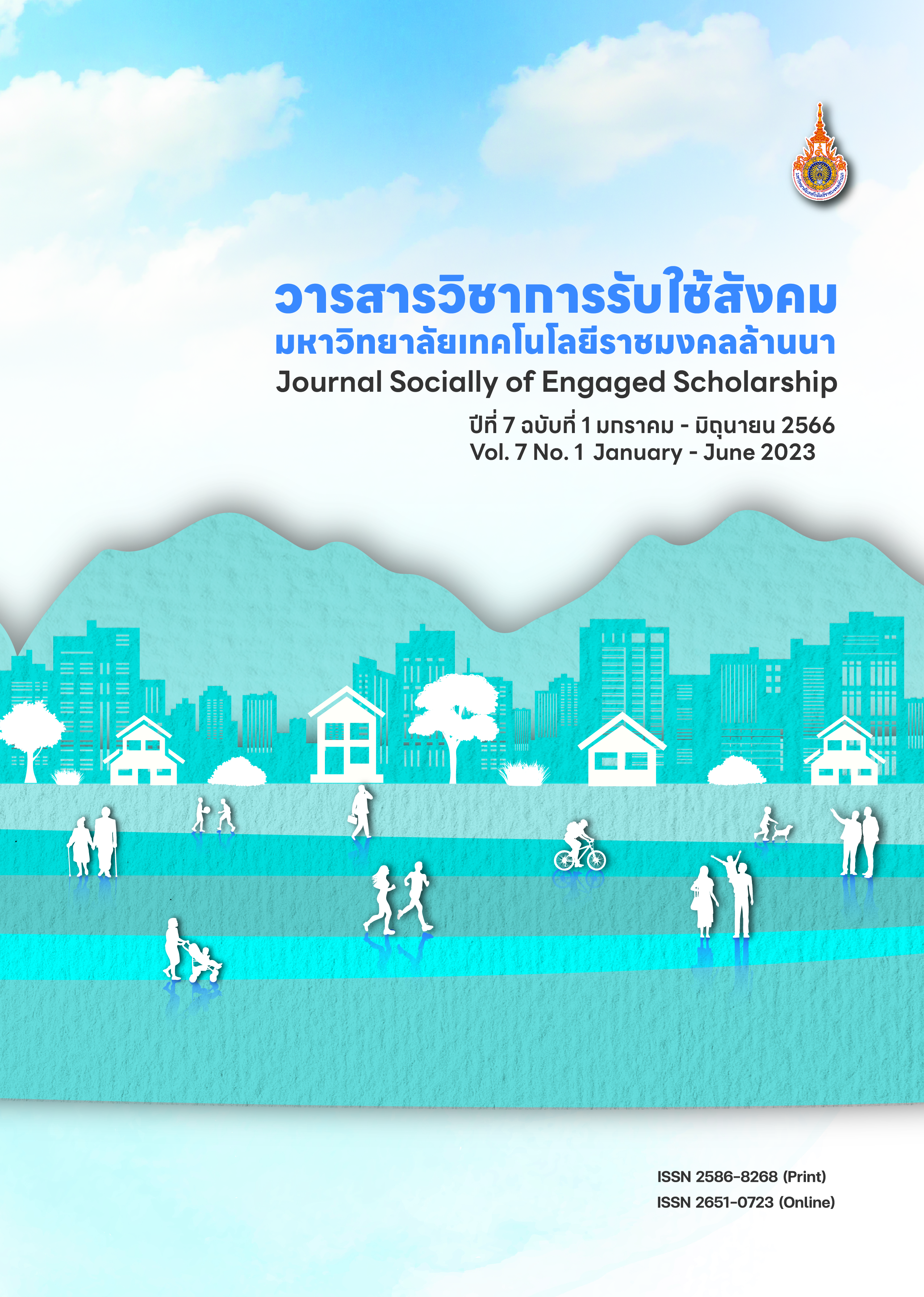The study of mixed factors of brick with Ingredient of cockle burned and charcoal for giant freshwater prawn process
Main Article Content
Abstract
The study aimed to mixed factors of brick with Ingredient of cockle burned and charcoal for giant freshwater prawn process. This research was conducted under the community-based waste management project that involved community participation in creating value-added from waste materials to produce environmentally friendly products for community development. The main objectives were to generate value-added from waste materials and discarded waste in the community to develop new environmentally friendly products and to contribute to the development of the community. The scope of the study focused on utilizing waste materials or discarded waste to develop a composite component in bricks using cockle burned and charcoal. The study was conducted in two communities, namely Lad Ya and Nong Bua, in Mueang District, Kanchanaburi Province. In creating prototype products of bricks from waste materials, 10 different formulas were designed and tested by incorporating different proportions of cockle burned and charcoal into the bricks. The physical and mechanical properties were evaluated, and it was found that the most suitable proportion of clamshell and charcoal was 10% cockle burned (45 grams) and 5% charcoal (22.5 grams). The study further utilized the optimized bricks to construct a test pond for giant freshwater prawn to investigate their efficiency compared to standard bricks and different construction techniques (with or without plastering). The test pond had dimensions of 1 meter width, 2 meters length, and 1 meter height. The study concluded that the pH value of the prototype brick pond was within the suitable range for giant freshwater prawn, with an average pH value of 7.87. The ideal pH range for giant freshwater prawn is between 7.5 and 8.5. Based on the hypothesis testing, the study found that the pond type and the duration of measuring the growth rate of giant freshwater prawn had a significant effect, as indicated by a P-value less than the significant level of 0.05. Therefore, it can be concluded
that both the pond type and the duration of rearing significantly affected the growth rate of giant freshwater prawn at a confidence level of 95%. When considering the average body length of giant freshwater prawn, the unpainted prototype brick pond showed the best results, followed by the plastered brick pond. The growth rates were 28.23% and 21.96%, respectively. In summary, the tested prototype bricks made from a mixture of 10% cockle burned (45 grams) and 5% charcoal (22.5 grams) exhibited superior performance in giant freshwater prawn compared to standard bricks. These findings demonstrate that the optimized bricks can achieve an 83.79% higher efficiency.
Article Details
This article is published under a Creative Commons Attribution-NonCommercial-NoDerivatives 4.0 International License (CC BY-NC-ND 4.0), which allows others to share the article with proper attribution to the authors and prohibits commercial use or modification. For any other reuse or republication, permission from the journal and the authors is required.


